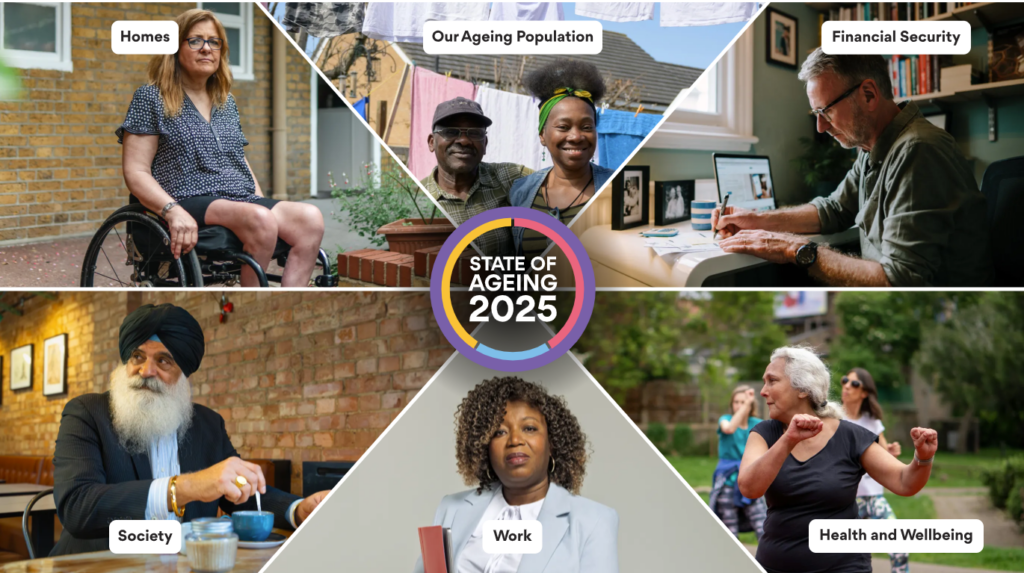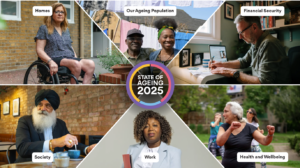The latest research by The Centre for Aging better, State of Ageing 2025 report finds that living in the poorest parts of England can cost you almost five years of your life.
We will be focussing on, and discussing the report findings in more detail over the coming weeks and months but you can click on the button below to read a detailed summary.
The State of Ageing in 2025
All of us deserve the best possible lives as we grow older, and our whole society reaps the rewards when people can age well. Our new analysis of the state of ageing in England in 2025 reveals millions more of us are living into our seventies, eighties, nineties and beyond, in good health, working for longer and supporting our communities through volunteering and caring.
But this report also highlights that this rosy, positive picture of ageing is unobtainable for any, such as those who are living in poor housing, in poverty and poor health, and who are isolated from their communities and society. The report shows the impact of regional inequalities that determine the quality of people’s later life. Quite simply, where you are born in England determines how you live and how well you age.
The regional differences in how we age accumulate over many years and can be seen in this report across health, employment, financial security and the state of our homes. The North-South health divide is particularly stark, with life expectancy, healthy life expectancy and other determinants of a healthy older age, looking very different, for example, in Blackpool compared with Hart in Hampshire. Not only are there significant differences between regions, there are also differences in how well people age living in different areas of the same town.
It should be a real concern to both national and local policymakers that regional inequalities in how we age are growing. The gap is widening depending on where we live – and for some people this regional inequality comes on top of other disadvantages, widening the gap further. For example, the racism experienced by many people from minority ethnic backgrounds affects employment, income and other factors that we know help people to age well (see State of Ageing 2023/4).
The gaps in health and wealth between people living in different regions are glaring:
- Where you are born in England is associated with how long you can expect to live: the life expectancy of men in Hart (Hampshire) is almost 10 years longer than for men in Blackpool, while a boy born in the North East can expect to live 74% of their life in good health compared with 80% in London
- 2.3 million older people are living in homes that have an adverse effect on their health. And while the rate of non-decency is highest in the private rented sector, the absolute number of non-decent homes is highest in the owner-occupied sector: a total of 1.3 million homes owned by someone aged 55 and over are non-decent, with the highest number (212,000) seen in the North West
- The employment rate gap or ‘age penalty’ (the gap in the employment rate between people aged 35 to 49 and those aged 50 to 65) is largest in the North East (19.8 percentage points), followed by London (19.1 percentage points). The gap is lowest in the North West (11.6 percentage points) and the South East (13.9 percentage points)
- Relative pensioner poverty rates vary across England, with the highest rates in Yorkshire and the Humber (20%), five percentage points higher than in the East Midlands and the South West
We need the government and others to take inequalities in ageing seriously and address the lack of olitical focus that has meant chronic underinvestment in helping people to age well. We also need to address the pervasive ageism in society that produces negative and distorted views of ageing and older people. By doing this, we can properly value and benefit from the contributions of older people to our society.




